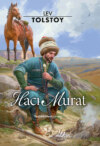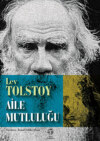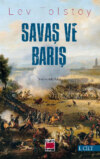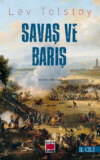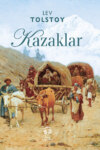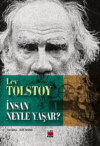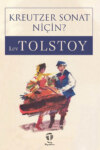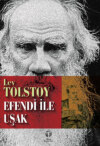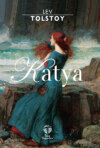Kitabı oku: «A Russian Proprietor, and Other Stories», sayfa 10
IV
The next morning when Delesof was awakened to go to his office, he saw, with an unpleasant feeling of surprise, his old screen, his old servant, and his clock on the table.
"What did I expect to see if not the usual objects that surround me?" he asked himself.
Then he recollected the musician's black eyes and happy smile; the motive of the Melancholie and all the strange experiences of the night came back into his consciousness. It was never his way, however, to reconsider whether he had done wisely or foolishly in taking the musician home with him. After he had dressed, he carefully laid out his plans for the day: he took some paper, wrote out some necessary directions for the house, and hastily put on his cloak and galoshes.
As he went by the dining-room he glanced in at the door. Albert, with his face buried in the pillow and lying at full length in his dirty, tattered shirt, was buried in the profoundest slumber on the saffron sofa, where in absolute unconsciousness he had been laid the night before.
Delesof felt that something was not right: it disturbed him. "Please go for me to Boriuzovsky, and borrow his violin for a day or two," said he to his man; "and when he wakes up, bring him some coffee, and get him some clean linen and some old suit or other of mine. Fix him up as well as you can, please."
When he returned home in the afternoon, Delesof, to his surprise, found that Albert was not there.
"Where is he?" he asked of his man.
"He went out immediately after dinner," replied the servant. "He took the violin, and went out, saying that he would be back again in an hour; but since that time we have not seen him."
"Ta, ta! how provoking!" said Delesof. "Why did you let him go, Zakhár?"
Zakhár was a Petersburg lackey, who had been in Delesof's service for eight years. Delesof, as a single young bachelor, could not help intrusting him with his plans; and he liked to get his judgment in regard to each of his undertakings.
"How should I have ventured to detain him?" replied Zakhár, playing with his watch-charms. "If you had intimated, Dmitri Ivánovitch, that you wished me to keep him here, I might have kept him at home. But you only spoke of his wardrobe."
"Ta! how vexatious! Well, what has he been doing while I was out?"
Zakhár smiled.
"Indeed, he's a real artist, as you may say, Dmitri Ivánovitch. As soon as he woke up he asked for some madeira: then he began to keep the cook and me pretty busy. Such an absurd… However, he's a very interesting character. I brought him some tea, got some dinner ready for him; but he would not eat alone, so he asked me to sit down with him. But when he began to play on the fiddle, then I knew that you would not find many such artists at Izler's. One might well keep such a man. When he played 'Down the Little Mother Volga' for us, why, it was enough to make a man weep. It was too good for any thing! The people from all the floors came down into our entry to listen."
"Well, did you give him some clothes?" asked the bárin.
"Certainly I did: I gave him your dress-shirt, and I put on him an overcoat of mine. You want to help such a man as that, he's a fine fellow." Zakhár smiled. "He asked me what rank you were, and if you had had important acquaintances, and how many souls of peasantry you had."
"Very good: but now we must send and find him; and henceforth don't give him any thing to drink, otherwise you'll do him more harm than good."
"That is true," said Zakhár in assent. "He doesn't seem in very robust health: we used to have an overseer who, like him"…
Delesof, who had already long ago heard the story of the drunken overseer, did not give Zakhár time to finish, but bade him make every thing ready for the night, and then go out and bring the musician back.
He threw himself down on his bed, and put out the candle; but it was long before he fell asleep, for thinking about Albert.
"This may seem strange to some of my friends," said Delesof to himself, "but how seldom it is that I can do any thing for any one beside myself! and I ought to thank God for a chance when one presents itself. I will not send him away. I will do every thing, at least every thing that I can, to help him. Maybe he is not absolutely crazy, but only inclined to get drunk. It certainly will not cost me very much. Where one is, there is always enough to satisfy two. Let him live with me a while, and then we will find him a place, or get him up a concert; we'll help him off the shoals, and then there will be time enough to see what will come of it." An agreeable sense of self-satisfaction came over him after making this resolution.
"Certainly I am not a bad man: I might say I am far from being a bad man," he thought. "I might go so far as to say that I am a good man, when I compare myself with others."
He was just dropping off to sleep when the sound of opening doors, and steps in the ante-room, roused him again. "Well, shall I treat him rather severely?" he asked himself; "I suppose that is best, and I ought to do it."
He rang.
"Well, did you find him?" he asked of Zakhár, who answered his call.
"He's a poor, wretched fellow, Dmitri Ivánovitch," said Zakhár, shaking his head significantly, and closing his eyes.
"What! is he drunk?"
"Very weak."
"Had he the violin with him?"
"I brought it: the lady gave it to me."
"All right. Now please don't bring him to me to-night: let him sleep it off; and to-morrow don't under any circumstances let him out of the house."
But before Zakhár had time to leave the room, Albert came in.
V
"You don't mean to say that you've gone to bed at this time," said Albert with a smile. "I was there again, at Anna Ivánovna's. I spent a very pleasant evening. We had music, told stories; there was a very pleasant company there. Please let me have a glass of something to drink," he added, seizing a carafe of water that stood on the table, "only not water."
Albert was just as he had been the night before, – the same lovely smiling eyes and lips, the same fresh inspired brow, and weak features. Zakhár's overcoat fitted him as though it had been made for him, and the clean, tall, stiffly-starched collar of the dress-shirt picturesquely fitted around his delicate white neck, giving him a peculiarly childlike and innocent appearance.
He sat down on Delesof's bed, smiling with pleasure and gratitude, and looked at him without speaking. Delesof gazed into Albert's eyes, and suddenly felt himself once under the sway of that smile. All desire for sleep vanished from him, he forgot his resolution to be stern: on the contrary, he felt like having a gay time, to hear some music, and to talk confidentially with Albert till morning. Delesof bade Zakhár bring a bottle of wine, cigarettes, and the violin.
"This is excellent," said Albert. "It's early yet, we'll have a little music. I will play whatever you like."
Zakhár, with evident satisfaction, brought a bottle of Lafitte, two glasses, some mild cigarettes such as Albert smoked, and the violin. But, instead of going off to bed as his bárin bade him, he lighted a cigar, and sat down in the next room.
"Let us talk instead," said Delesof to the musician, who was beginning to tune the violin.
Albert sat down submissively on the bed, and smiled pleasantly.
"Oh, yes!" said he, suddenly striking his forehead with his hand, and putting on an expression of anxious curiosity. The expression of his face always foretold what he was going to say. "I wanted to ask you," – he hesitated a little, – "that gentleman who was there with you last evening… You called him N. Was he the son of the celebrated N.?"
"His own son," replied Delesof, not understanding at all what Albert could find of interest in him.
"Indeed!" he exclaimed, smiling with satisfaction. "I instantly noticed that there was something peculiarly aristocratic in his manners. I love aristocrats. There is something splendid and elegant about an aristocrat. And that officer who danced so beautifully," he went on to ask. "He also pleased me very much, he was so gay and noble looking. It seems he is called Adjutant N. N."
"Who?" asked Delesof.
"The one who ran into me when we were dancing. He must be a splendid man."
"No, he is a silly fellow," replied Delesof.
"Oh, no! it can't be," rejoined Albert hotly. "There's something very, very pleasant about him. And he's a fine musician," added Albert. "He played something from an opera. It's a long time since I have seen any one who pleased me so much."
"Yes, he plays very well; but I don't like his playing," said Delesof, anxious to bring his companion to talk about music. "He does not understand classic music, but only Donizetti and Bellini; and that's no music, you know. You agree with me, don't you?"
"Oh, no, no! Pardon me," replied Albert with a gentle expression of vindication. "The old music is music; but modern music is music too. And in the modern music there are extraordinarily beautiful things. Now, 'Somnambula,' and the finale of 'Lucia,' and Chopin, and 'Robert'! I often think," – he hesitated, apparently collecting his thoughts, – "that if Beethoven were alive, he would weep tears of joy to hear 'Somnambula.' It's so beautiful all through. I heard 'Somnambula' first when Viardot and Rubini were here. That was something worth while," he said, with shining eyes, and making a gesture with both hands, as though he were casting something from his breast. "I'd give a good deal, but it would be impossible, to bring it back."
"Well, but how do you like the opera nowadays?" asked Delesof.
"Bosio is good, very good," was his reply, "exquisite beyond words; but she does not touch me here," he said, pointing to his sunken chest. "A singer must have passion, and she hasn't any. She is enjoyable, but she doesn't torture you."
"Well, how about Lablache?"
"I heard him in Paris, in 'The Barber of Seville.' Then he was the only one, but now he is old. He can't be an artist, he is old."
"Well, supposing he is old, still he is fine in morceaux d'ensemble," said Delesof, still speaking of Lablache.
"Who said that he was old?" said Albert severely. "He can't be old. The artist can never be old. Much is needed in an artist, but fire most of all," he declared with glistening eyes, and raising both hands in the air. And, indeed, a terrible inner fire seemed to glow throughout his whole frame. "Ah, my God!" he exclaimed suddenly. "You don't know Petrof, do you, – Petrof, the artist?"
"No, I don't know him," replied Delesof with a smile.
"How I wish that you and he might become acquainted! You would enjoy talking with him. How he does understand art! He and I often used to meet at Anna Ivánovna's, but now she is vexed with him for some reason or other. But I really wish that you might make his acquaintance. He has great, great talent."
"Oh! Does he paint pictures?" asked Delesof.
"I don't know. No, I think not; but he was an artist of the Academy. What thoughts he had! Whenever he talks, it is wonderful. Oh, Petrof has great talent, only he leads a very gay life!.. It's too bad," said Albert with a smile. The next moment he got up from the bed, took the violin, and began to play.
"Have you been at the opera lately?" asked Delesof.
Albert looked round, and sighed.
"Ah, I have not been able to!" he said, clutching his head. Again he sat down by Delesof. "I will tell you," he went on to say, almost in a whisper. "I can't go: I can't play there. I have nothing, nothing at all, – no clothes, no home, no violin. It's a wretched life, – a wretched life!" he repeated the phrase. "Yes, and why have I got into such a state? Why, indeed? It ought not to have been," said he, smiling. "Akh! Don Juan."
And he struck his head.
"Now let us have something to eat," said Delesof.
Albert, without replying, sprang up, seized the violin, and began to play the finale of the first act of "Don Juan," accompanying it with a description of the scene in the opera.
Delesof felt the hair stand up on his head, when he played the voice of the dying commander.
"No, I cannot play to-night," said Albert, laying down the instrument. "I have been drinking too much." But immediately after he went to the table, poured out a brimming glass of wine, drank it at one gulp, and again sat down on the bed near Delesof.
Delesof looked steadily at Albert. The latter occasionally smiled, and Delesof returned his smile. Neither of them spoke, but the glance and smile brought them close together into a reciprocity of affection. Delesof felt that he was growing constantly fonder and fonder of this man, and he experienced an inexpressible pleasure.
"Were you ever in love?" he asked suddenly. Albert remained sunk in thought for a few seconds, then his face lighted up with a melancholy smile. He bent over toward Delesof, and gazed straight into his eyes.
"Why did you ask me that question?" he whispered. "But I will tell you all about it. I like you," he added, after a few moments of thought, and glancing around. "I will not deceive you, I will tell you all, just as it was, from the beginning." He paused, and his eyes took on a strange wild appearance. "You know that I am weak in judgment," he said suddenly. "Yes, yes," he continued. "Anna Ivánovna has told you about it. She tells everybody that I am crazy. It isn't true, she says it for a joke; she is a good woman, but I really have not been quite well for some time." Albert paused again, and stood up, gazing with wide-opened eyes at the dark door. "You asked me if I had ever been in love. Yes, I have been in love," he whispered, raising his brows. "That happened long ago; it was at a time when I still had a place at the theatre. I went to play second violin at the opera, and she came into a parquet box at the left."
Albert stood up, and bent over to Delesof's ear. "But no," said he, "why should I mention her name? You probably know her, everybody knows her. I said nothing, but simply looked at her: I knew that I was a poor artist, and she an aristocratic lady. I knew that very well. I only looked at her, and had no thoughts."
Albert paused for a moment, as though making sure of his recollections.
"How it happened I know not, but I was invited once to accompany her on my violin… Now I was only a poor artist!" he repeated, shaking his head and smiling. "But no, I cannot tell you, I cannot!" he exclaimed, again clutching his head. "How happy I was!"
"What? did you go to her house often?" asked Delesof.
"Once, only once… But it was my own fault; I wasn't in my right mind. I was a poor artist, and she an aristocratic lady. I ought not to have spoken to her. But I lost my senses, I committed a folly. Petrof told me the truth: 'It would have been better only to have seen her at the theatre.'"
"What did you do?" asked Delesof.
"Ah! wait, wait, I cannot tell you that."
And, hiding his face in his hands, he said nothing for some time.
"I was late at the orchestra. Petrof and I had been drinking that evening, and I was excited. She was sitting in her box, and talking with some general. I don't know who that general was. She was sitting at the very edge of the box, with her arm resting on the rim. She wore a white dress, with pearls on her neck. She was talking with him, but she looked at me. Twice she looked at me. She had arranged her hair in such a becoming way! I stopped playing, and stood near the bass, and gazed at her. Then, for the first time, something strange took place in me. She smiled on the general, but she looked at me. I felt certain that she was talking about me; and suddenly I seemed to be not in my place in the orchestra, but was standing in her box, and seizing her hand in that place. What was the meaning of that?" asked Albert, after a moment's silence.
"A powerful imagination," said Delesof.
"No, no, … I cannot tell," said Albert frowning. "Even then I was poor. I hadn't any room; and when I went to the theatre, I sometimes used to sleep there."
"What, in the theatre?" asked Delesof.
"Ah! I am not afraid of these stupid things. Ah! just wait a moment. As soon as everybody was gone, I went to that box where she had been sitting, and slept there. That was my only pleasure. How many nights I spent there! Only once again did I have that experience. At night many things seemed to come to me. But I cannot tell you much about them." Albert contracted his brows, and looked at Delesof. "What did it mean?" he asked.
"It was strange," replied the other.
"No, wait, wait!" he bent over to his ear, and said in a whisper, —
"I kissed her hand, wept there before her, and said many things to her. I heard the fragrance of her sighs, I heard her voice. She said many things to me that one night. Then I took my violin, and began to play softly. And I played beautifully. But it became terrible to me. I am not afraid of such stupid things, and I don't believe in them, but my head felt terribly," he said, smiling sweetly, and moving his hand over his forehead. "It seemed terrible to me on account of my poor mind; something happened in my head. Maybe it was nothing; what do you think?"
Neither spoke for several minutes.
"Und wenn die Wolken sie verhüllen,
Die Sonne bleibt doch ewig klar. 54"
hummed Albert, smiling gently. "That is true, isn't it?" he asked.
"Ich auch habe gelebt und genossen." 55
"Ah, old man Petrof! how this would have made things clear to you!"
Delesof, in silence and with dismay, looked at his companion's excited and colorless face.
"Do you know the Juristen waltzes?" suddenly asked Albert in a loud voice, and without waiting for an answer, jumped up, seized the violin, and began to play the waltz. In absolute self-forgetfulness, and evidently imagining that a whole orchestra was playing for him, Albert smiled, began to dance, to shuffle his feet, and to play admirably.
"Hey, we will have a good time!" he exclaimed, as he ended, and waved his violin. "I am going," said he, after sitting down in silence for a little. "Won't you come along too?"
"Where?" asked Delesof in surprise.
"Let us go to Anna Ivánovna's again. It's gay there, – bustle, people, music."
Delesof for a moment was almost persuaded. However, coming to his senses, he promised Albert that he would go with him the next day.
"I should like to go this minute."
"Indeed, I wouldn't go."
Albert sighed, and laid down the violin.
"Shall I stay, then?" He looked over at the table, but the wine was gone; and so, wishing him a good-night, he left the room.
Delesof rang. "Look here," said he to Zakhár, "don't let Mr. Albert go anywhere without asking me about it first."
VI
The next day was a holiday. Delesof, on waking, sat in his parlor, drinking his coffee and reading a book. Albert, who was in the next room, had not yet moved. Zakhár discreetly opened the door, and looked into the dining-room.
"Would you believe it, Dmitri Ivánovitch, there he lies asleep on the bare sofa. I would not send him away for any thing, God knows. He's like a little child. Indeed, he's an artist!"
At twelve o'clock, there was a sound of yawning and coughing on the other side of the door.
Zakhár again crept into the dining-room; and the bárin heard his wheedling voice, and Albert's gentle, beseeching voice.
"Well, how is he?" asked Delesof, when Zakhár came out.
"He feels blue, Dmitri Ivánovitch. He doesn't want to get dressed. He's so cross. All he asks for is something to drink."
"Now, if we are to get hold of him, we must strengthen his character," said Delesof to himself. And, forbidding Zakhár to give him any wine, he again devoted himself to his book; in spite of himself, however, listening all the time for developments in the dining-room.
But there was no movement there, only occasionally were heard a heavy chest cough and spitting. Two hours passed. Delesof, after dressing to go out, resolved to look in upon his guest. Albert was sitting motionless at the window, leaning his head on his hands.
He looked round. His face was sallow, morose, and not only melancholy but deeply unhappy. He tried to welcome his host with a smile, but his face assumed a still more woe-begone expression. It seemed as though he were on the point of tears.
With effort he stood up and bowed. "If I might have just a little glass of simple vodka," he exclaimed with a supplicating expression. "I am so weak. If you please!"
"Coffee will be more strengthening, I would advise you."
Albert's face lost its childish expression; he gazed coldly, sadly, out of the window, and fell back into the chair.
"Wouldn't you like some breakfast?"
"No, thank you, I haven't any appetite."
"If you want to play on the violin, you will not disturb me," said Delesof, laying the instrument on the table. Albert looked at the violin with a contemptuous smile.
"No, I am too weak, I cannot play," he said, and pushed the instrument from him.
After that, in reply to all Delesof's propositions to go to walk, to go to the theatre in the evening, or any thing else, he only shook his head mournfully, and refused to speak.
Delesof went out, made a few calls, dined out, and before the theatre hour, he returned to his rooms to change his attire and find out how the musician was getting along.
Albert was sitting in the dark ante-room, and, with his head resting on his hand, was gazing at the heated stove. He was neatly dressed, washed and combed; but his eyes were sad and vacant, and his whole form expressed even more weakness and debility than in the morning.
"Well, have you had dinner, Mr. Albert?" asked Delesof.
Albert nodded his head, and, after looking with a terrified expression at Delesof, dropped his eyes. It made Delesof feel uncomfortable.
"I have been talking to-day with a manager," said he, also dropping his eyes. "He would be very glad to make terms with you, if you would like to accept an engagement."
"I thank you, but I cannot play," said Albert, almost in a whisper; and he went into his room, and closed the door as softly as possible. After a few minutes, lifting the latch as softly as possible, he came out of the room, bringing the violin. Casting a sharp, angry look at Delesof, he laid the instrument on the table, and again disappeared.
Delesof shrugged his shoulders, and smiled.
"What am I to do now? Wherein am I to blame?" he asked himself.
"Well, how is the musician?" was his first question when he returned home late that evening.
"Bad," was Zakhár's short and ringing reply. "He sighs all the time, and coughs, and says nothing at all, only he has asked for vodka four or five times, and once I gave him some. How can we avoid killing him this way, Dmitri Ivánovitch? That was the way the overseer"…
"Well, hasn't he played on the fiddle?"
"Didn't even touch it. I took it to him, twice – Well, he took it up slowly, and carried it out," said Zakhár with a smile. "Do you still bid me refuse him something to drink?"
"Don't give him any thing to-day; we'll see what'll come of it. What is he doing now?"
"He has shut himself into the parlor."
Delesof went into his library, took down a few French books, and the Testament in German. "Put these books to-morrow in his room; and look out, don't let him get away," said he to Zakhár.
The next morning Zakhár informed his bárin that the musician had not slept a wink all night. "He kept walking up and down his rooms, and going to the sideboard to try to open the cupboard and door; but every thing, in spite of his efforts, remained locked."
Zakhár told how, while he was going to sleep, he heard Albert muttering to himself in the darkness and gesticulating.
Each day Albert grew more gloomy and taciturn. It seemed as though he were afraid of Delesof, and his face expressed painful terror whenever their eyes met. He did not touch either book or violin, and made no replies to the questions put to him.
On the third day after the musician came to stay with him, Delesof returned home late in the evening, tired and worried. He had been on the go all day, attending to his duties. Though they had seemed very simple and easy, yet, as is often the case, he had not made any progress at all, in spite of his strenuous endeavors. Afterwards he had stopped at the club, and lost at whist. He was out of spirits.
"Well, God be with him," he replied to Zakhár, who had been telling him of Albert's pitiable state. "To-morrow I shall be really worried about him. Is he willing or not to stay with me, and follow my advice? No? Then it's idle. I have done the best that I could."
"That's what comes of trying to be a benefactor to people," said he to himself. "I am putting myself to inconvenience for him. I have taken this filthy creature into my rooms, which keeps me from receiving strangers in the morning; I work and trot; and yet he looks upon me as some enemy who, against his will, would keep him in pound. But the worst is, that he is not willing to take a step in his own behalf. That's the way with them all."
That word all referred to people in general, and especially to those with whom he had been associated in business that day. "But what is to be done for him now? What is he contemplating? Why is he melancholy? Is he melancholy on account of the debauch from which I rescued him? on account of the degradation in which he has been? the humiliation from which I saved him? Can it be that he has fallen so low that it is a burden for him to look on a pure life?..
"No, this was a childish action," reasoned Delesof. "Why should I undertake to direct others, when it is as much as I can do to manage my own affairs?"
The impulse came over him to let him go immediately, but after a little deliberation he postponed it till the morning.
During the night Delesof was aroused by the noise of a falling table in the ante-room, and the sound of voices and stamping feet.
"Just wait a little, I will tell Dmitri Ivánovitch," said Zakhár's voice; Albert's voice replied passionately and incoherently.
Delesof leaped up, and went with a candle into the ante-room. Zakhár in his nightdress was standing against the door; Albert in cap and alma viva was trying to pull him away, and was screaming at him in a pathetic voice.
"You have no right to detain me; I have a passport; I have not stolen any thing from you. You must let me go. I will go to the police."
"I beg of you, Dmitri Ivánovitch," said Zakhár, turning to his bárin, and continuing to stand guard at the door. "He got up in the night, found the key in my overcoat-pocket, and he has drunk up the whole decanter of sweet vodka. Was that good? And now he wants to go. You didn't give me orders, and so I could not let him out."
Albert, seeing Delesof, began to pull still more violently on Zakhár. "No one has the right to detain me! He cannot do it," he screamed, raising his voice more and more.
"Let him go, Zakhár," said Delesof. "I do not wish to detain you, and I have no right to, but I advise you to stay till to-morrow," he added, addressing Albert.
"No one has the right to detain me. I am going to the police," screamed Albert more and more furiously, addressing only Zakhár, and not heeding Delesof. "Guard!" he suddenly shouted at the top of his voice.
"Now, what are you screaming like that for? You see you are free to go," said Zakhár, opening the door.
Albert ceased screaming. "How did they dare? They were going to murder me! No!" he muttered to himself as he put on his galoshes. Not offering to say good-by, and still muttering something unintelligible, he went out of the door. Zakhár accompanied him to the gate, and came back.
"Thank the Lord, Dmitri Ivánovitch! Any longer would have been a sin," said he to his bárin. "And now we must count the silver."
Delesof only shook his head, and made no reply. There came over him a lively recollection of the first two evenings which he and the musician had spent together; he remembered the last wretched days which Albert had spent there; and above all he remembered the sweet but absurd sentiment of wonder, of love, and of sympathy, which had been aroused in him by the very first sight of this strange man; and he began to pity him.
"What will become of him now?" he asked himself. "Without money, without warm clothing, alone at midnight!" He thought of sending Zakhár after him, but now it was too late.
"Is it cold out doors?" he asked.
"A healthy frost, Dmitri Ivánovitch," replied the man. "I forgot to tell you that you will have to buy some more firewood to last till spring."
"But what did you mean by saying that it would last?"

